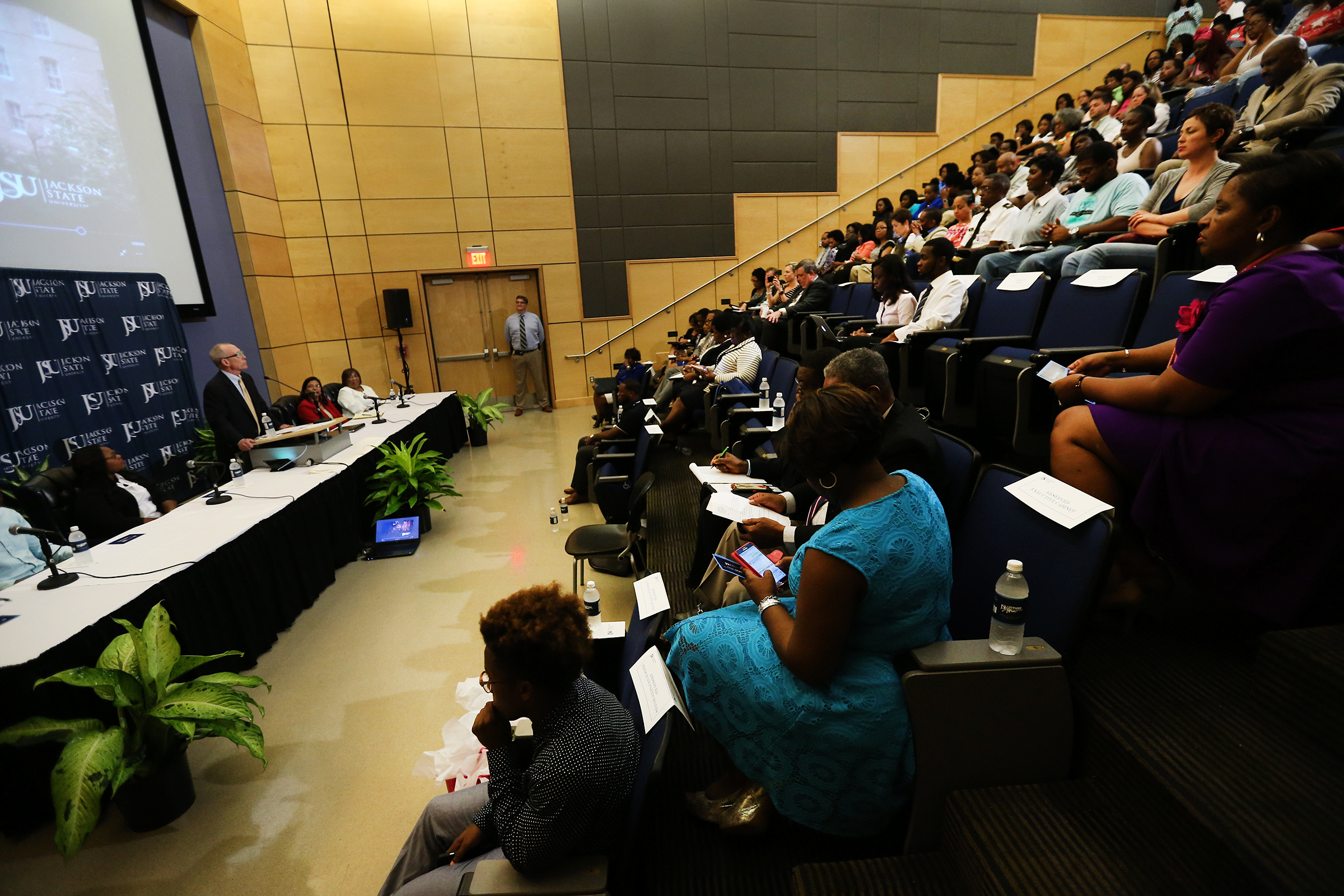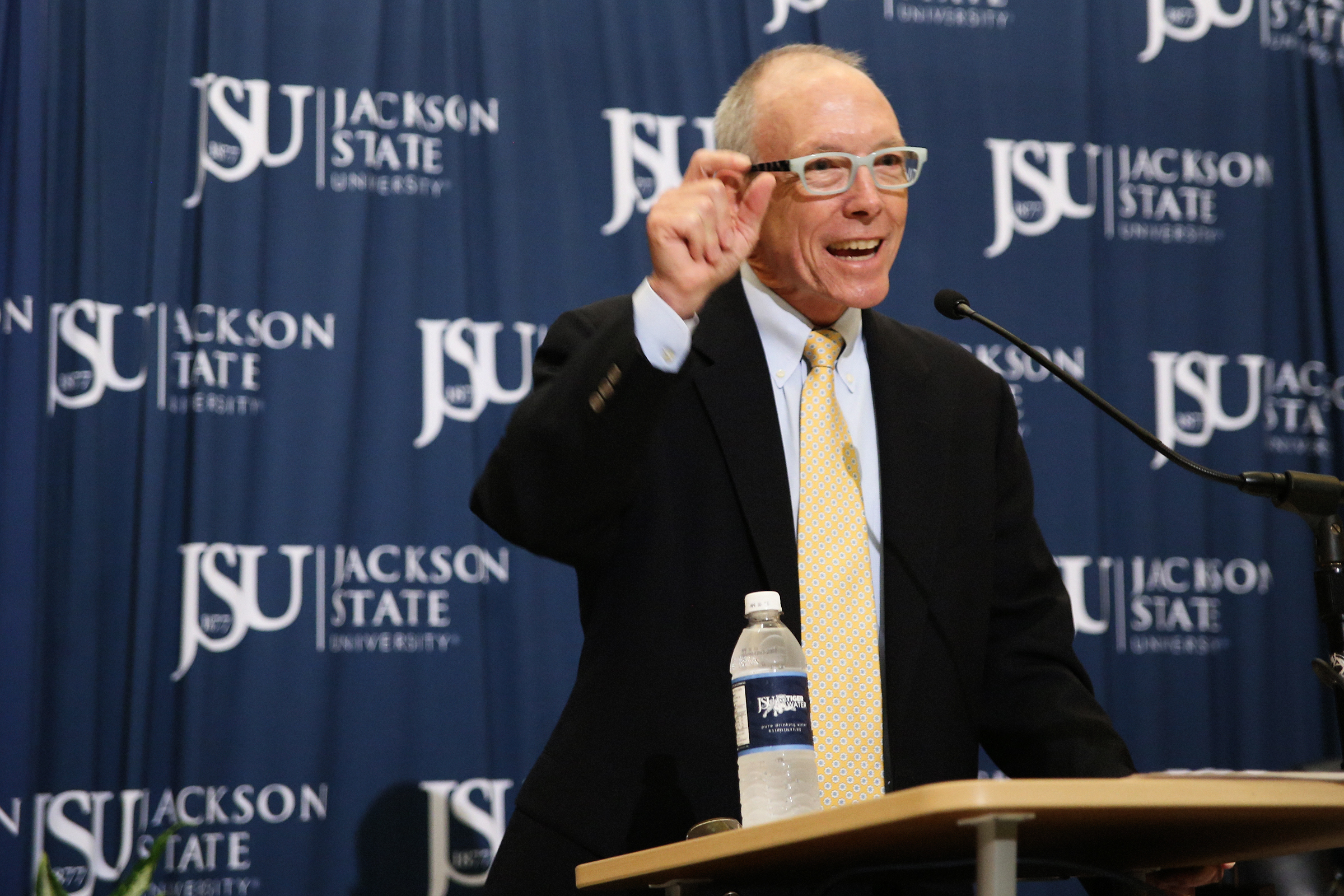
![]()
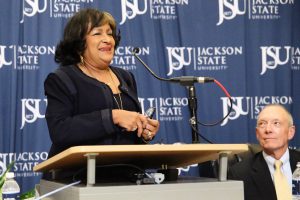
High school students at Jackson Public Schools will be able to earn college credit at Jackson State University under a dual enrollment plan touted by U.S. Under Secretary of Education Ted Mitchell in a visit to the HBCU campus Thursday.
During a stop on a bus tour called Opportunity Across America, the high-ranking official with the U.S. Department of Education likened opportunity to JSU because, he said, the university provides support to students who traditionally have not had access to higher education.
JSU is the only public four-year HBCU to receive this opportunity and one of only 44 postsecondary institutions nationwide that will participate in the dual enrollment experiment. Mitchell said the program will help students develop skills and talents to succeed in a “highly charged competitive global economy.”
Furthermore, Mitchell referred to opportunity as completion. “While access is great, it doesn’t matter a whole lot if you’re not walking across the stage at the end of the program.” He said Jackson State has excelled by providing access to education, implementing cutting-edge state-of-the-art programs, and focusing in “laser-like fashion” on completion and graduation.
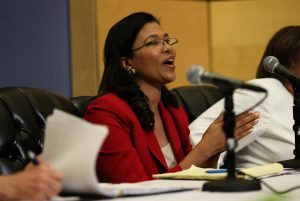
Pathways into higher education
Williams explained that partnerships between K-12 school districts and leading research and teaching universities provide pathways for students into higher education.
That message was echoed by JSU President Carolyn W. Meyers, as well as from administrators and students of the two participating institutions.
Meyers told special guests and community supporters that “this partnership between the professionals at Jackson Public Schools and Jackson State University is so special because it stands to make differences that you’ll be able to see immediately. Each of us shares a passion that concerns the future not only of this city, the state, and the nation but the whole world. You’ve come together to make sure that low-income or limited opportunities are not limits to how you can dream, grow and contribute to making this planet a better place.”
She also expressed appreciation for the First In The World grants that address widespread challenges to postsecondary education for at-risk individuals and others, including first-generation students, minorities and those from low-income backgrounds.
“Creating a college-going culture”
Dr. Fred Murray, chief academic officer for high schools for JPS, described the alliance with JSU as a tremendous honor.
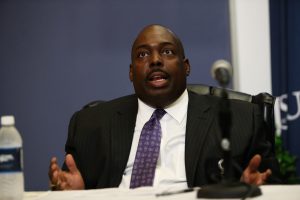
“It’s a perfect fit,” he said. “We’re creating a college-going culture. … We want to have systemic success across our city. … We’re rethinking the way we educate our students. … We’re raising the rigor within the walls of our building so that our students can be college- and career-ready when they exit. … We see this experiment being so successful that you can’t help but continue the process.”
JPS student Myia Bolden, a senior at Murrah High school, said, “Participating in this program gives me an opportunity to be a leader to those who want to be a part of this program. Also, it will help my parents pay for school.”
Another Murrah senior, Isaiah McCoy, said, “This is a great opportunity to earn college credit. It helps you avoid having a strenuous year coming in as a freshman and gives you a true feel for college life and prepares you to be successful. It also allows you to grow into an adult.”
Decisions about college
Another JSU academic leader says she sees a huge potential for high school students.
Dr. Marie O’Banner-Jackson, interim dean of the Division of Undergraduate Studies and CyberLearning, said the partnership will allow high school students to take a first-hand look at Jackson State, enroll in college classes and make a decision about college.
“We hope that this program will aid toward college completion and better prepare them for the workforce. … We can appreciate not having to finance students who choose to participate in dual enrollment. We’re doing what we’ve done since 1877: providing opportunities and access to education.”
O’Banner-Jackson explained that students who participate successfully in the program would be able to accelerate their college graduation by, perhaps, finishing in two years rather than four. … “We have a cadre of teachers who are dedicated to working with high school students.”
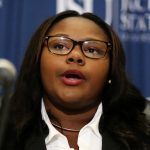
Meanwhile, Secretary Mitchell, whose duties include implementing President Barack Obama’s goals to make the U.S. the world’s best competitive workforce by 2020, said this nation aims to spur economic growth and prosperity by providing financial assistance to young people so they can earn high-quality postsecondary education. He said the strategy must involve affordability along with an emphasis on graduation.
“We want to become first in the world by putting federal dollars behind initiatives supporting students for whom opportunity is neither obvious nor inevitable,” Mitchell said.
“We can’t continue to do things the same way and expect to grow a population of people with postsecondary degrees and credentials. We think of this as both a math problem and a moral problem. It’s a math problem because we need to reach an increasingly diverse population of college-goers – whether that’s economic diversity or racial diversity.”
Williams said HBCUs have an important role to the future of higher education because they have been at the center for providing opportunity to people for whom higher education has been an unrealized dream.
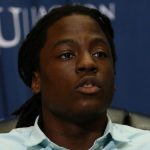
African-Americans in STEM
Quoting the National Science Foundation, he said, for example, that while HBCUs represent just 3 percent of colleges and universities they produce 22 percent of African-American students with bachelor’s degrees in STEM (science, technology, engineering and mathematics).
Williams commended Jackson State for being a leader in innovation, citing the university’s “Call Me Mister” program that helps develop more African-American male teachers and its CyberLearning initiatives to enhance its curriculum and instruction with digital technology.
Kim Hunter-Reed, U.S. deputy under secretary of education and director of the White House Initiatives on HBCUs, said, “We’re so proud of Jackson State and the work you’re doing. … Opportunity means a credential of value beyond high school to fully participate in this economy.”
Also, she said, “For many students, access and affordability run hand and hand. If we can’t afford it, we can’t aspire to it. When we hear from individuals who say students are falling through the cracks, we know that these are the kinds of programs that work because they’re seamless. You start in high school, and you matriculate right into college. We’re saying to students that you can do this.”
Williams, too, reiterated that success is possible for those who may have been marginalized or overlooked. He affirmed the importance of HBCUs.
He said institution such as JSU continue to play a “disproportionate and outsized role in creating opportunities for leadership among African-American men and women. … What’s happening on the ground at Jackson State is simply incredible,” Williams said.
